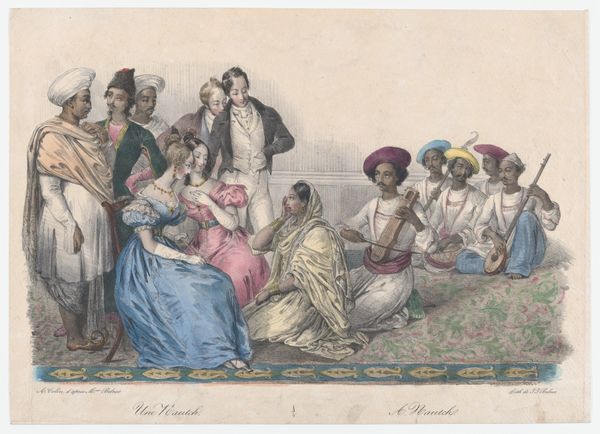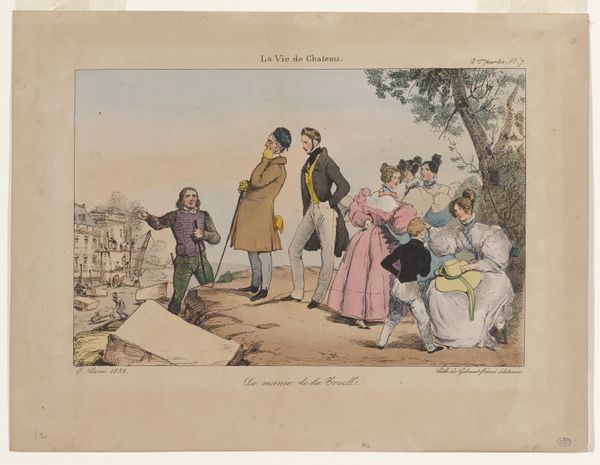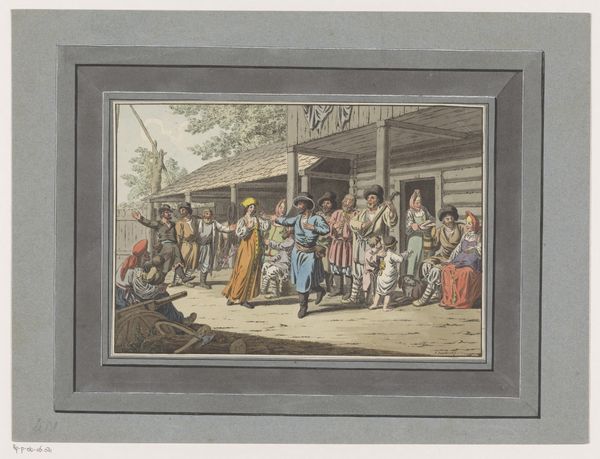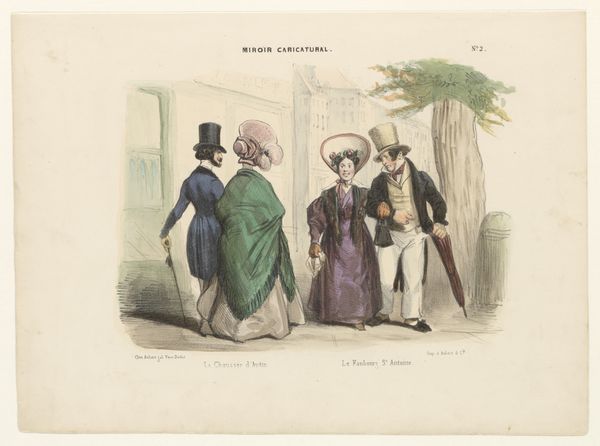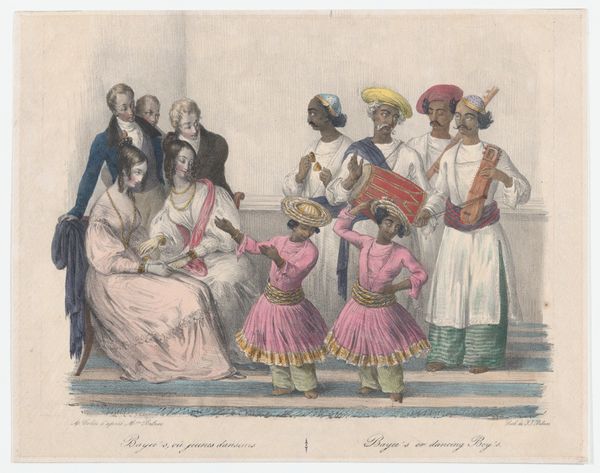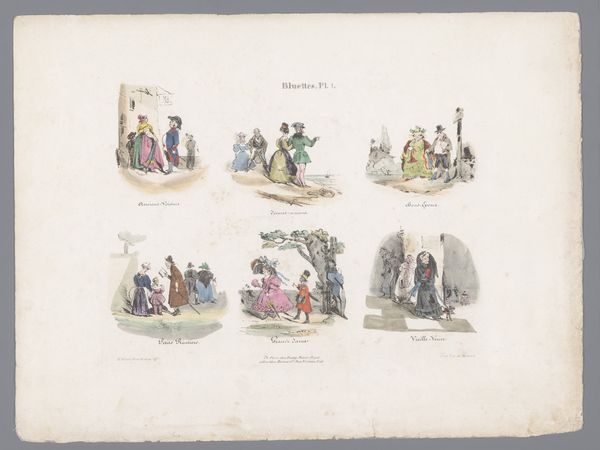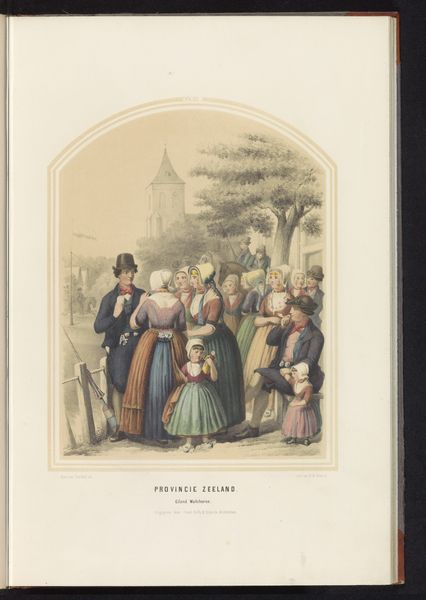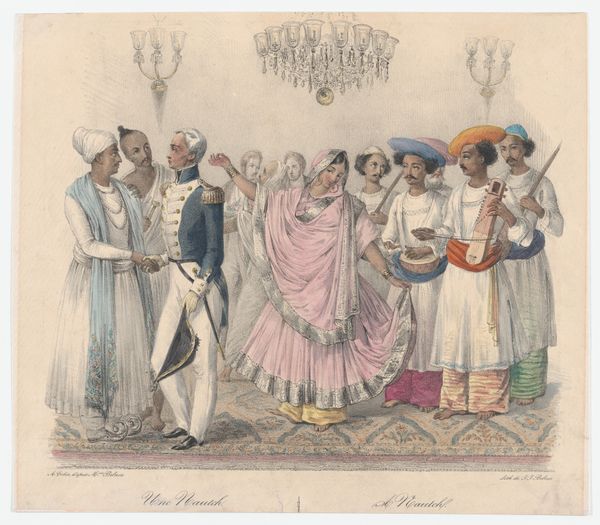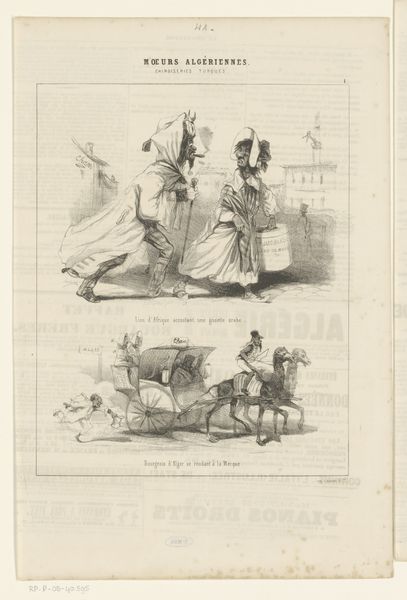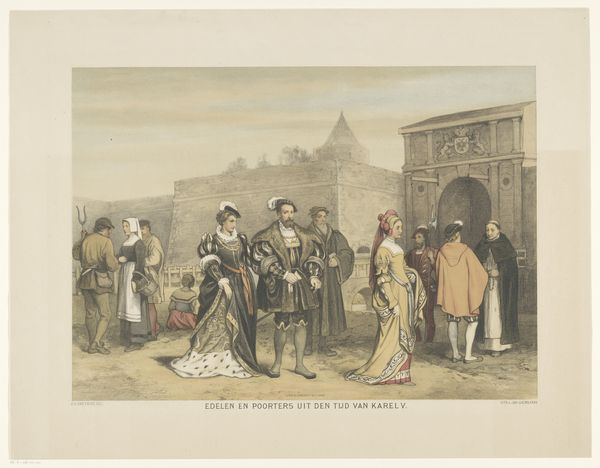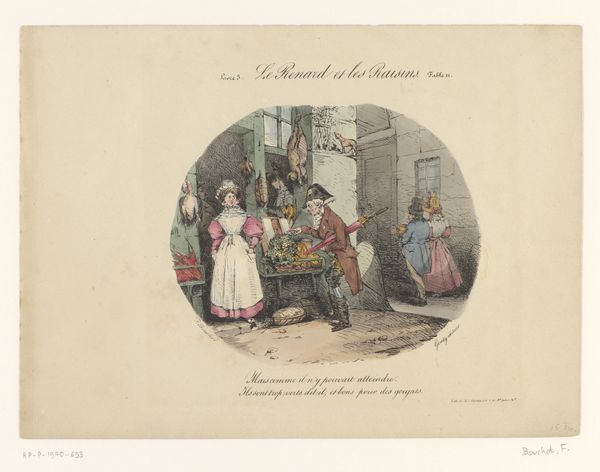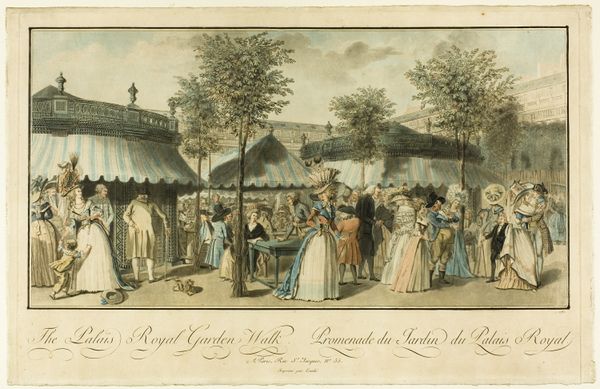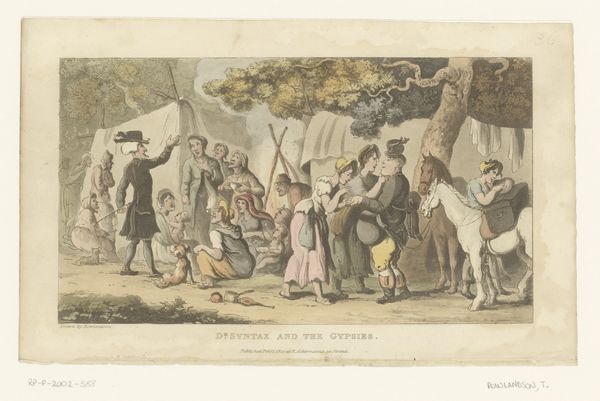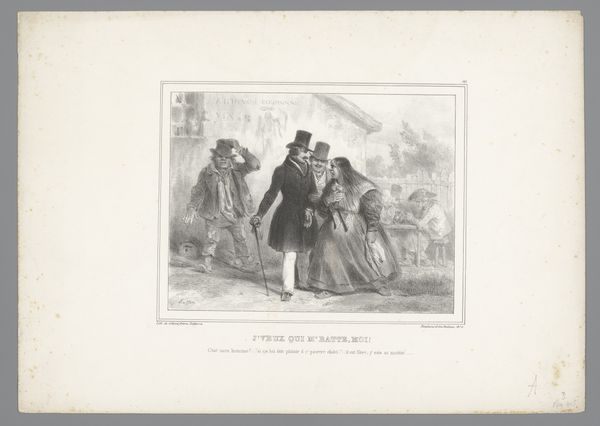
Une soiree des Musiciens Italiens sur le boulevard c. early 19th century
0:00
0:00
#
muted colour palette
#
photo restoration
#
ink paper printed
# print
#
light earthy tone
#
collage layering style
#
nude colour palette
#
france
#
muted colours
#
muted colour
#
soft colour palette
#
watercolor
Dimensions: 7 1/2 x 10 1/4 in. (19.05 x 26.04 cm) (image)
Copyright: Public Domain
Editor: We're looking at Jean Henri Marlet’s “Une soiree des Musiciens Italiens sur le boulevard,” a print from the early 19th century, currently at the Minneapolis Institute of Art. There's a kind of idealized tranquility in this scene, a formal gathering in public. How do you interpret this work? Curator: It is indeed a moment staged for observation. Think about the 'boulevard' itself. Emerging in the late 18th century, these spaces signified a shift: former fortifications transformed into promenades, accessible to a wider public. Who had access to this space? Look closely at the people, their attire and the implied social interactions in place. What narrative do we observe of early 19th century class and gender roles? Editor: I notice the contrast between the musicians, who seem to be working, and the people who are watching and listening. It feels like there's a performance happening on multiple levels. Curator: Precisely. The musicians' Italian identity is important too. What does it mean to import culture? Is this a mere illustration of leisure, or could Marlet be subtly commenting on France's relationship to other cultures, and how "foreignness" becomes a spectacle? Whose stories are highlighted and which ones are missing? What is excluded? Editor: So, it’s not just a pleasant scene. It tells us a lot about the period's cultural dynamics and power structures. I had initially interpreted this as a document, but now I understand it as a complex tableau. Curator: Exactly. Art is rarely neutral. The details Marlet includes—and those he omits—speak volumes about the era and its unspoken assumptions. Recognizing these elements allows us to engage critically with the work and see it in a much richer, more nuanced context.
Comments
No comments
Be the first to comment and join the conversation on the ultimate creative platform.
